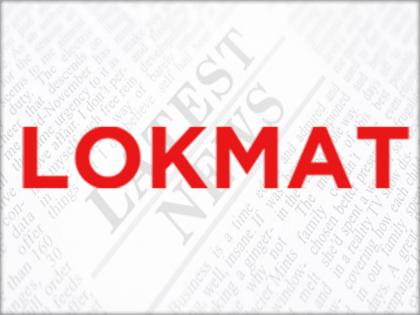Focus Area within New Education Policy (Column: Active Voice)
By IANS | Published: June 29, 2019 02:36 PM2019-06-29T14:36:05+5:302019-06-29T14:45:06+5:30
of universalisation of primary education, with almost 100 per cent Gross Enrolment Rate (2014-15), quality of education in the last decade has gone down. While ASER 2008 revealed that 50.6 per cent grade 3 children in India could read a grade 1 text, this number reduced to 42.5 per cent by 2016. With India committed to the Sustainable Development Goal of achieving equitable quality education and lifelong learning opportunities for all by 2030, this backward trend is a cause of concern.

Focus Area within New Education Policy (Column: Active Voice)
Padhe Bharat Badhe Bharat scheme launched in 2014 under the aegis of SSA aims to improve the reading and writing skills of children in grades 1 and 2. The recently released draft New Education Policy 2019 also talks of foundational literacy and age appropriate pedagogical practices. It not only talks of revamping the current educational structure, but also promotes massive teacher education and professional development reforms. The draft NEP also talks about remedial education, primarily for those who have been left behind and struggle with the daily challenges of curriculum in class.
Despite the new era of reforms that might soon be pushed, one question that largely remains ignored in this discussion is: are we ready for change? The concept of literacy is expanding and is not confined to development of basic reading writing abilities alone. Literacy today talks of the ability to access information from multiple sources, deal with multiple perspectives and layered meaning in a text and form an informed opinion. The objective today is to ensure the development of independent learning skills in children and this can only be achieved on a strong foundation of early grade literacy.
Unfortunately, stakeholders at various levels today seem to be ill-prepared or ill-equipped on multiple fronts. Firstly, there is a general lack of understanding about 'science of reading', among teachers, both public and private. This is not to pass on the blame to the teachers in any way. On the contrary, the attempt is to provide a sympathetic view. Most of the pre-service teacher education courses use obsolete content with minimal focus on reading pedagogy. The result is often an unprepared teacher having to deal with children speaking multiple home languages and coming with minimum or no quality preschool experience. Add to it the fact that they are pressured to teach multi-level, multi-grade classrooms with ill-designed curriculum, poorly designed textbooks and still show results. The in-service teacher training does little to help alleviate the problem.
Secondly, the state government also provides a cadre of academic officials known as Block Resource Persons (BRPs) or Cluster Academic Coordinators (CACs) to monitor and support the teachers in delivery of effective classroom instruction. However, owing to less than adequate academic capabilities and conceptual knowledge, they seem to be unable to do justice to their defined role. Also, in most of the states they are largely seen to be involved in administrative tasks that provides them with no challenge and zeal to focus on quality education. Lack of understanding of early grade literacy exists even at the highest level of government machinery, with senior officials 'demanding' results; rather than working to improve systemic inefficiencies and capabilities.
Thirdly, parents from humble backgrounds, proud of being the first ones to send their kids to school, more often than not are satisfied with their children just 'attending school' and do not 'demand' quality. These first generation learners themselves come completely unprepared for the school and are lost amidst the textbooks and rote learning of the script.
Lastly, most of the government schools have inadequate infrastructure and non-functional libraries stacked with low quality inappropriate reading material for early graders, if any. The missing culture of reading both in our schools and our communities does not help either.
There is an urgent need today to ensure quality education in primary grades, or else our demographic advantage may very soon turn to 'demographic burden'. Language experts must be involved in the development of a broad literacy framework based on scientific pedagogical principles that provides scalable sustainable inputs with in-built flexibility for state specific contexts. Based on the framework, early grade curriculum needs to be reworked on and textbooks revised. Teacher education courses and in-service training need to be made more relevant and closely linked to ground realities. There should be creation of government recognised MOOC courses focusing on pedagogy, in teachers' own language. The structure and content of in-service teacher training needs to be changed. These should be followed by regular long-term mentoring and support on the ground, which is not possible unless there is a cadre of trained academic coordinators. Hence, focused training for BRPs/CACs on pedagogy and mentoring skills remains a non-negotiable. Schools need to be filled with relevant and appropriate reading material for primary grades, either through school libraries or classroom libraries.
Lastly, all of this can only be done if sufficient awareness and sensitivity about early grade literacy is brought about not only at the level of the community, but also at the highest bureaucratic and political level.
The draft New Education Policy 2019 needs to ponder over these issues and provide appropriate solutions. One can only hope that the new era of reforms would help India provide quality learning opportunities to those we fail most often, our children.
(Amit Kapoor is chair, Institute for Competitiveness, India. He can be contacted at Amit.Kapoor@competitiveness.in and tweets @kautiliya. Nidhi Vinayak, educationist, is co-author for the piece).
( With inputs from IANS )
Open in app